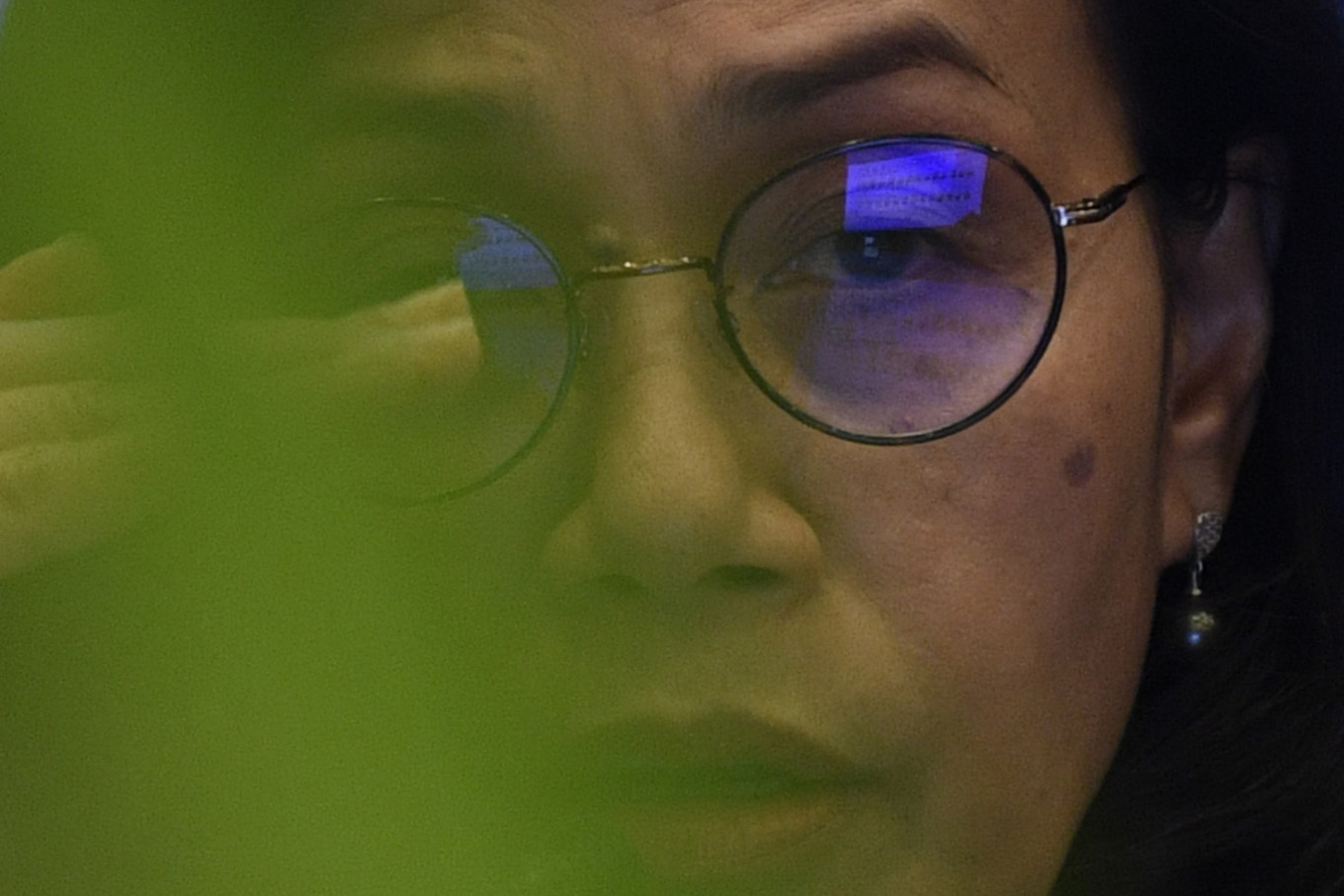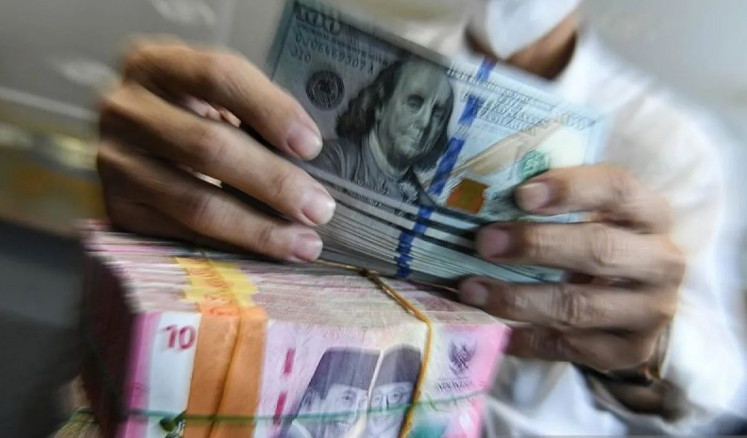Popular Reads
Top Results
Can't find what you're looking for?
View all search resultsPopular Reads
Top Results
Can't find what you're looking for?
View all search resultsIndonesia’s 2021 economic recovery will not be at ‘full power’: Sri Mulyani
Change text size
Gift Premium Articles
to Anyone
I
ndonesia’s economic recovery in 2021 may not be at “full power”, with the COVID-19 pandemic expected to continue to dampen domestic consumption and investment, Finance Minister Sri Mulyani Indrawati has said.
While the government anticipates a vaccine will be available for the public in the second half of next year, the economy may remain sluggish until then, Sri Mulyani stated on Wednesday.
“We cannot assume there will be a full-power recovery because the COVID-19 pandemic will remain an important factor that will hold up the recovery of domestic consumption, investment and the global economy,” she told lawmakers during a hearing at the House of Representatives. “Our economy will depend on the recovery in the second half of 2021.”
Bringing COVID-19 under control, as well as the recovery of the global economy and structural reforms to attract investment and fiscal support, are among the important factors that will impact the economy next year, Sri Mulyani said Tuesday.
Given these challenges, the government expects the economy to grow by 4.5 to 5.5 percent next year.
“Taking into account these factors and the lower baseline economic growth in 2020, the government is convinced the economic growth [target] remains realistic,” the minister said.
The government has allocated Rp 695.2 trillion this year to rescue the economy, but bureaucratic red tape and a lack of citizen data has held up the much-needed disbursement of assistance and stimulus funds.
Indonesia’s economy contracted 5.32 percent in the second quarter this year as domestic consumption, business investment and government spending fell significantly. Meanwhile, the country has continued to record thousands of new COVID-19 cases this week, with the overall tally reaching 180,000 on Wednesday, according to official records.
Sri Mulyani said many expected the country to enter a recession in the third quarter this year, while negative growth also anticipated to continue into the fourth quarter. The government has forecast the economy to contract 1.1 percent to 0.2 percent this year.
Meanwhile, National Development Planning Agency (Bappenas) Minister Suharso Monoarfa stated on the same occasion that the pandemic would also cause mass layoffs and see millions fall into poverty, increasing the country’s level of inequality.
The government estimates that the open unemployment rate will increase to around 8.1 to 9.2 percent due to the impacts of the COVID-19 outbreak, from 4.8 to 5 percent previously, while the poverty rate could surge to around 9.7 to 10.2 percent from 8.5 to 9 percent before the pandemic, according to Suharso.
Indonesia’s gini ratio is also expected to increase to 0.379 to 0.381 from 0.375 to 0.380, signaling growing inequality, he added.
President Joko “Jokowi” Widodo said on Tuesday that the coronavirus outbreak would likely peak this month, adding that he was “very confident” a safe and effective vaccine would be developed by the end of this year.
“From what I gathered this morning, the peak will still be in September,” Jokowi said as reported by Reuters. “After that, it will fall.”
However, efforts to revive the economy continue to be haunted by the rising number of COVID-19 cases.
Indonesia’s manufacturing activity has shown signs of improvement for the first time since February, with IHS Markit’s Manufacturing Purchasing Managers’ Index (PMI) for Indonesia, a gauge of the country’s manufacturing activity, rising to 50.8 points in August from 46.9 a month before, with a value above 50 indicating expansion against the previous month.
However, risks remain as new COVID-19 clusters emerge in factories and industrial areas and as household spending remains weak.
Retail sales in Indonesia also continued to contract on a year-on-year basis in July, but the contractions have been improving since the lows recorded in May, said analysts at Fitch Solutions.
“Similar to household goods and electronics, the sale of these discretionary items have yet to record a meaningful recovery, suggesting that Indonesian consumers have been severely impacted by the economic realities of the COVID-19 pandemic and its resultant restrictions,” the analysts wrote in a note made available to The Jakarta Post. “This does not bode well for the remainder of 2020, as more job losses or wage cuts are likely to exacerbate this.”










